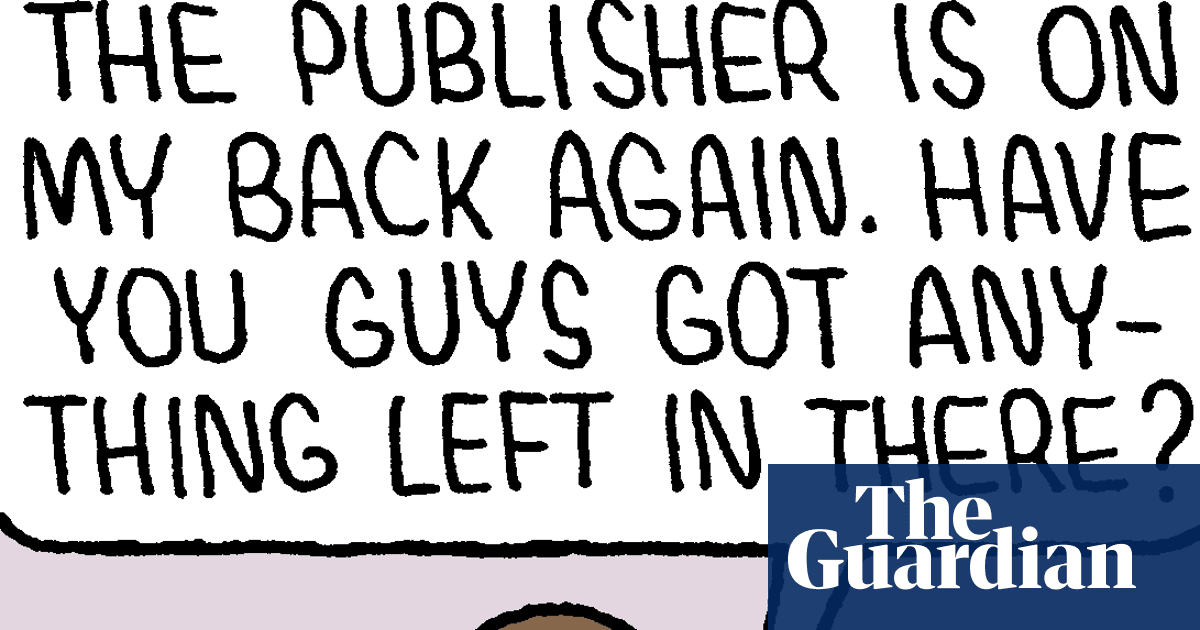“No one likes us, we don’t care.” It may be rousing on the stadium terraces of south London, as the signature chant for Millwall football club, but as a national strategy it’s a disaster. Even so, Israel has become a Millwall among the nations, apparently unbothered by and impervious to the condemnation of a watching world – condemnation which this week gained serious momentum.
As one country after another pointed an accusing finger towards Israel, repelled by the starvation, devastation and bloodshed it has brought down on Gaza, Israeli officials offered the now-familiar middle finger in return. When Keir Starmer announced Britain’s intention to recognise a state of Palestine, it was swiftly brushed aside by the deputy mayor of Jerusalem as “much ado about nothing”.
There was a similarly dismissive reaction to both France’s earlier pledge to make the same diplomatic move and Canada’s announcement on Wednesday that it would follow suit. Sometimes, the register is studied insouciance, a shrug of the shoulders; sometimes it’s anger. But the message is consistent: we won’t budge. As the Israeli ambassador to Canada put it: “Israel will not bow to the distorted campaign of international pressure against it.”
Yet for all the Shakespearean references, the “diplomatic tsunami” which Benjamin Netanyahu’s critics warned of for many years, and which now seems to have arrived, is not nothing. What’s more, and underneath the Millwall bluster, there are signs that Netanyahu knows it.
More than 140 of the 193 member states of the UN had already recognised Palestine, but that club will soon include major western powers: the shift by France, the UK and Canada means no fewer than three members of the G7 are now on board. This same week saw a special conference convened at the UN in New York, where 125 countries urged Netanyahu to commit to the establishment of a Palestinian state alongside Israel, as they sought to resurrect the long-moribund two-state solution.
All this diplomatic activity has prompted a series of objections from Israel and its defenders. First comes the claim that Israel’s critics are appeasers. Witness Netanyahu’s tweeted riposte to Starmer, which included the line: “Appeasement towards jihadist terrorists always fails.” Netanyahu often likes to invoke Winston Churchill and here he is again, casting himself as the Greatest Briton with Starmer as Neville Chamberlain, while his foreign minister is full of talk of Munich and 1938. As if there is any analogy between Nazi Germany grabbing a chunk of Czechoslovakia and Palestinians seeking self-determination in their historical homeland. It’s a line of argument insulting in its ignorance.
Next comes the charge that the likes of Starmer, Emmanuel Macron and Mark Carney are “rewarding terror”, handing Hamas a prize for the murderous series of atrocities it staged on 7 October 2023. But that’s an odd way to read what just happened. This week’s New York declaration, which was signed by Saudi Arabia, Egypt, Qatar and the Arab League, explicitly condemns “the attacks committed by Hamas against civilians” on that day, the first such official denunciation by the Arab states.
Moreover, the document is unambiguous that “Hamas must end its rule in Gaza and hand over its weapons to the Palestinian Authority”. The same message comes through loud and clear in the declarations made by Starmer and his counterparts: it is the PA, currently led by Fatah, that they envisage as the recognised authority of a Palestinian state. The leaders can be faulted for failing to explain how this vision of theirs will be realised, but the vision itself is straightforward – and there is no place in it for Hamas. Hard to spin that as a “reward”.
More forceful is the objection made by those campaigning for the release of the 20 Israeli hostages still believed to be held alive in Gaza. They argue that Starmer erred badly in suggesting that the UK would not go ahead with recognition of a Palestinian state if there were soon to be a ceasefire deal between Hamas and Israel in Gaza. That, the campaigners argue, in effect incentivised Hamas to refuse to do any deal – which would have to include the freeing of at least some hostages – so that UK recognition goes ahead as promised.
Starmer’s defenders believe this line of argument rests on a misunderstanding of Hamas. That group is not interested, they say, in a Palestinian state on the West Bank and Gaza, living alongside Israel. Hamas is not in the two-state business, but rather seeks to rule over a single, jihadist state across the entire land, from the river to the sea.
Indeed, given that the international community supported the principle of Palestinian independence before 7 October, to abandon it afterwards would itself be to reward Hamas, allowing that group to derail the two-state solution which it has been determined to sabotage since it first sent suicide bombers on to Israeli buses more than 30 years ago.
More powerful still is the charge that these announcements and declarations are displacement activity, gestures that reveal nothing so much as the various governments’ impotence. There is something to that: diplomatic recognition will not feed a single child in Gaza. When Starmer’s various demands on Netanyahu are blithely ignored, it will only advertise the British PM’s weakness. In a way, the move this week tacitly recognises that reality. It is predicated on the notion that Israel continues to act in ways that make a two-state solution less viable. Previously, Starmer had always said he wanted to wait until UK recognition could play a part in an unfolding, meaningful peace process. Now he has acknowledged that there is no such thing, that he risked holding on to a card that was turning to dust in his hands. Better to play it now before it becomes entirely worthless. As Wes Streeting put it, the UK should recognise Palestine “while there is still a state of Palestine to recognise”.
The hope in London, Paris and elsewhere is that, when the Gaza war eventually ends, the parameters of what should follow will already have been staked out. But, of course, Netanyahu is not listening. He made the decision long ago that Israel can ignore everybody – that the EU and the UN, along with every global institution from the World Health Organization to the BBC, can all be written off as hopelessly biased, if not bigoted – with only one exception: the US. Over the past decade or more, he has gone further, writing off half of the US too, choosing to ignore all Democrats and focus only on the Republican party. So long as Israel has the GOP’s backing, it’ll be fine.
That has always been a reckless strategy and this week confirmed the danger of it. For one thing, Israel needs the support of more than one country. The EU and UK may not match the US as arms suppliers, but, economically, Israel needs them as trading partners, on favourable terms. Besides, the US Republican party is not a wholly reliable ally: a substantial wing of the Maga movement is hostile to Israel. (This week, Marjorie Taylor Greene became the first US lawmaker to accuse the country of genocide.) And Trump himself does not entirely share Netanyahu’s sweeping disregard for international opinion. He disdains it, but he also seeks its approval: he wants that Nobel prize.
Steadily, the Israeli public is coming to see the price of the pariah status that Netanyahu has all but cultivated. A small portent is contained in the trouble currently greeting Israeli tourists in Greece. That may be the best way to understand the vehemence with which Israeli officials sought to dismiss Starmer et al this week, insisting in loud, furious statements that they weren’t bothered at all. Increasing numbers of Israelis know they do not have the luxury of being Millwall: maybe no one likes them – but quite a lot of them care.
-
Jonathan Freedland is a Guardian columnist
-
Do you have an opinion on the issues raised in this article? If you would like to submit a response of up to 300 words by email to be considered for publication in our letters section, please click here.

 3 months ago
56
3 months ago
56

















































